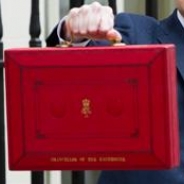
Reflections on the 2017 Spring Budget, from Grant Thornton
There has been a focus recently on the different ways in which individuals can provide their services to those engaging them, whether that be as employees, through personal service companies (PSCs) or on a self-employed basis.
Many individuals now work in the so-called gig economy, no longer providing their services as employees but on a self-employed basis. There have been high profile cases such as that involving Uber that have looked at whether such individuals are properly in business on their own account, or are what is known as workers with some rights similar to those available to employees.
Many individuals now work in the so-called gig economy, no longer providing their services as employees but on a self-employed basis. There have been high profile cases such as that involving Uber that have looked at whether such individuals are properly in business on their own account, or are what is known as workers with some rights similar to those available to employees.
There are also a number of reviews, such as the one being carried out by the RSA's Matthew Taylor, that are considering broader questions about the how employment practices need to change in order to keep pace with modern business models.
One of the incentives to move away from traditional employment models may be the potential saving of tax and National Insurance contributions (NIC) available to the self-employed or those providing their services through PSCs when compared to employees.
The Chancellor referred to the substantial NIC savings available to the self-employed when compared to employees – paying less than half the amount – in what appeared to be a prelude to an announcement of a major reform. Mr Hammond then announced a relatively modest increase in the NIC payable by the self-employed in 2018/19 – a maximum of £370 a year – with a similar increase in the following year.
Mr Hammond then moved his focus to those using PSCs, saying that their savings were even greater than the self-employed. Again, however, rather than a major reform, the Chancellor announced a reduction of £3,000 in the amount of dividends that can be paid tax free. This will affect all taxpayers in receipt of dividends whether workers or not.
It is not clear whether the Chancellor considers that these measures will fully address the imbalances that he cited, or whether further measures can be expected in the future. From the perspective of encouraging a vibrant economy, we would welcome further reform to ensure that business needs, as opposed to disparities in the tax system, determine the method of engagement.
It is not clear whether the Chancellor considers that these measures will fully address the imbalances that he cited, or whether further measures can be expected in the future. From the perspective of encouraging a vibrant economy, we would welcome further reform to ensure that business needs, as opposed to disparities in the tax system, determine the method of engagement.
Continuing the theme of modern employment practices, it was announced that there will be a call for evidence on the exemptions from and valuation of benefits in kind in order to better understand whether their use in the tax system can be made fairer and more consistent.
This joins already announced considerations of employee expenses and employer provided living accommodation. We hope that any further reforms are not simply a way to raise further revenue, but to incentivise employees in a fair way to increase productivity.



Please register or log in to add comments.
There are not comments added